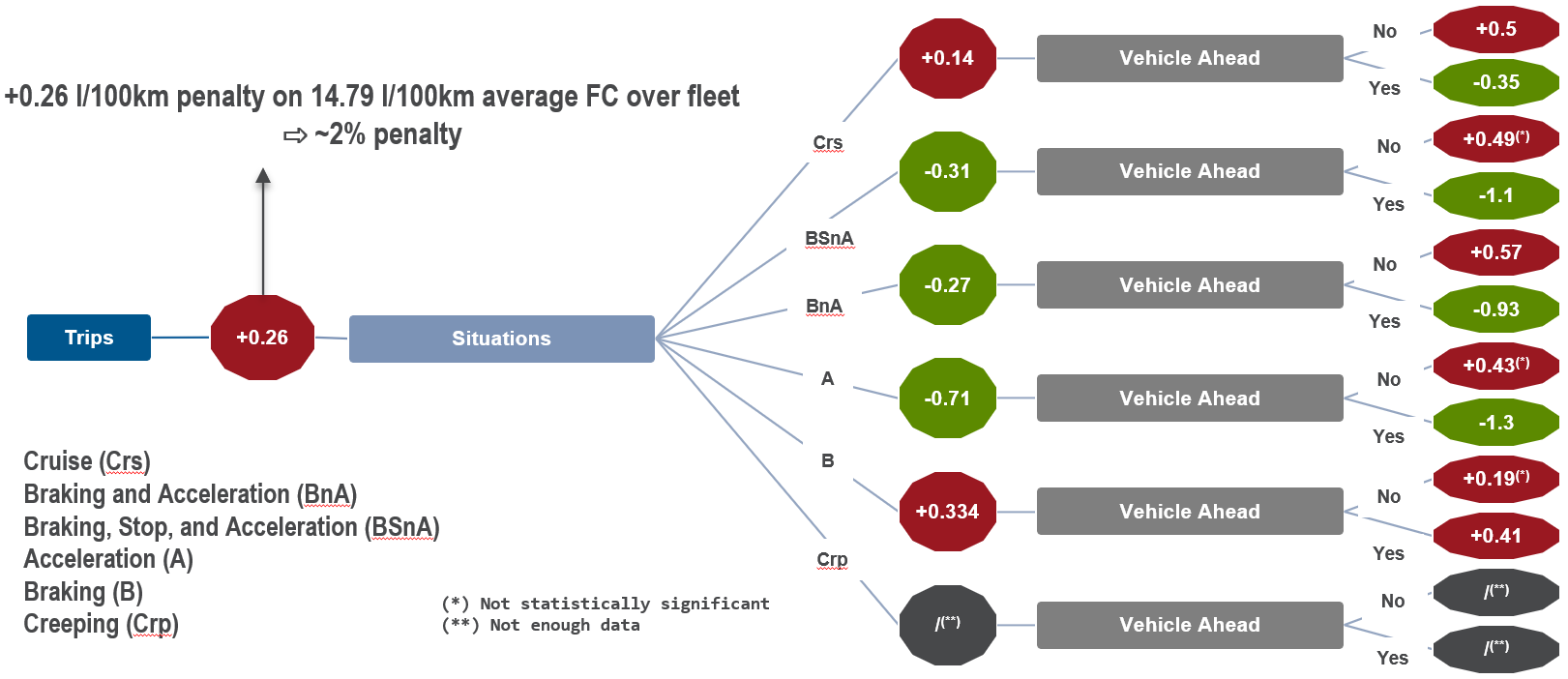Adaptive Cruise Control Real World Energy Consumption
Published: 2023 November
Real-world Effects of Automated Driving on Energy Consumption
Modern cars and trucks feature increasing levels of driving automation, such as adaptive cruise control (ACC). As more miles are driven by ACC algorithms, the machine’s “driving style” will impact the energy consumption. Evaluating those impacts, good or bad, can be a challenge. Argonne researchers have partnered with GM to analyze 1M km of real-world driving data to answer that question. The research was recently published in Nature Communications.
The paper, spearheaded by Ayman Moawad (TAPS-VMS) and technical consultant Matt Zebiak (now with 2050 Partners), compares energy consumption in cases of human vs automated driving using recorded data from GM’s captive fleet of 157 vehicles and 95 drivers. The research specifically highlights the nuanced role of ACC in energy consumption across various driving scenarios. It provides valuable insights into the factors contributing to efficiency differences and offers practical recommendations for designing advanced driver-assistance systems to enhance the energy performance of future automated driving systems.
The study reveals that current adaptive cruise control is about 2% less energy-efficient than the human drivers in the study are. Counter-intuitively, adaptive cruise control underperforms human drivers’ efficiency the most in precisely the type of driving where it is used the most today – cruising maneuvers, with minimal acceleration and braking. However, ACC is shown to outperform human drivers’ efficiency in more dynamic maneuvers involving acceleration and braking, presenting natural opportunities for energy savings as advanced automated driving technologies are increasingly used in suburban and urban road environments.
The study concludes by examining individual driving maneuver types in great detail, so the root causes for ACC’s efficiency shortfall in cruising can be addressed, and so ACC’s efficiency advantage in more dynamic conditions can be maximized. The team hopes to extend this research by combining the optimal strategies for each maneuver type into a unified automated driving control system and comparing the performance of this automated system to today’s ACC baseline.
 Distribution of the 40,356 trips analyzed in the dataset
Distribution of the 40,356 trips analyzed in the dataset
[1] Ayman Moawad, Matthew Zebiak, Jihun Han, Dominik Karbowski, Yaozhong Zhang, and Aymeric Rousseau, “Effect of adaptive cruise control on fuel consumption in real-world driving conditions,” Nature Communications, vol. 15, no. 1, p. 10016, Nov. 2024, https://doi.org/10.1038/s41467-024-54066-8
The study was funded by the US Department of Energy (DOE) Vehicle Technologies Office (VTO) Energy Efficient Mobility Systems (EEMS), as part of a Cooperative Research and Development Agreement with General Motors.